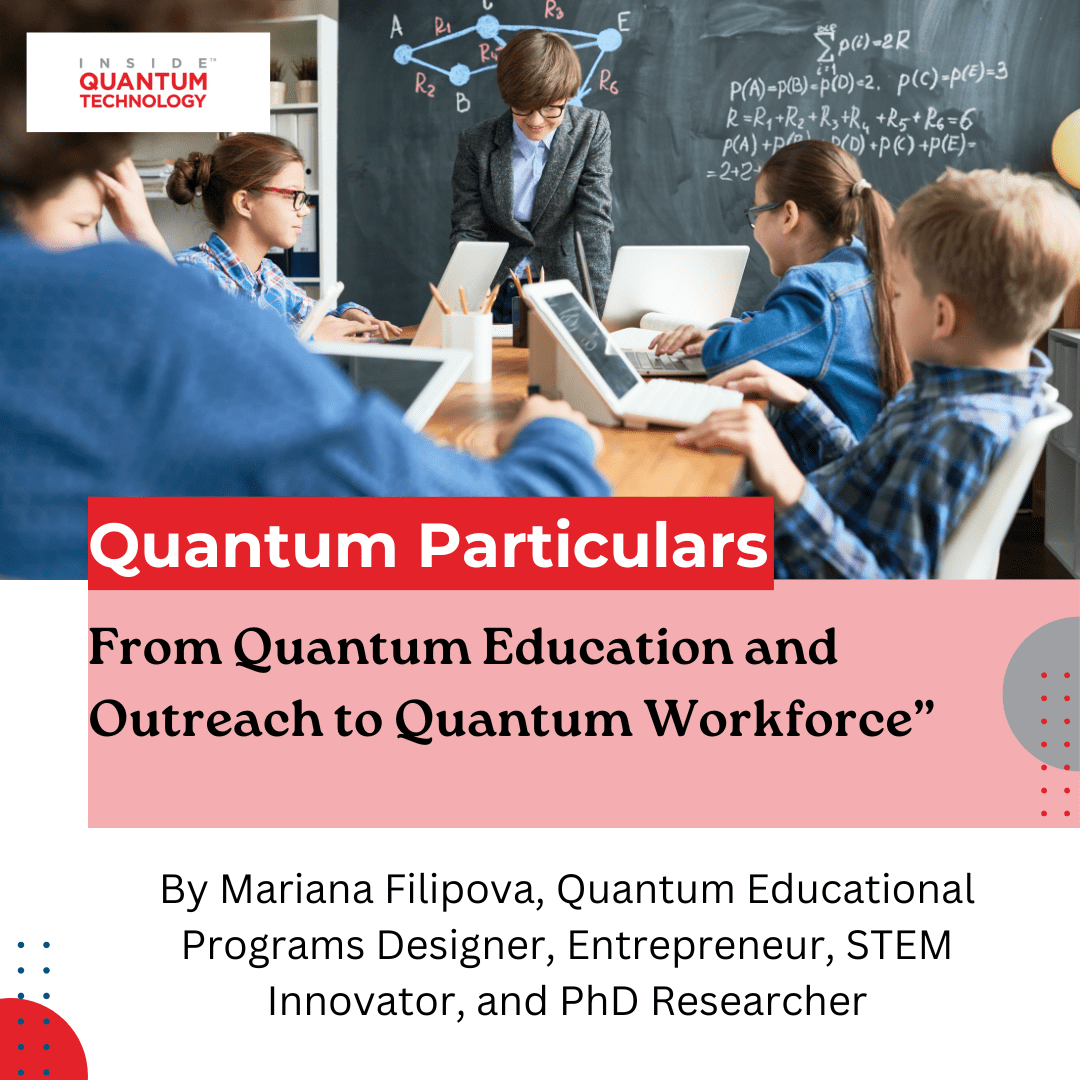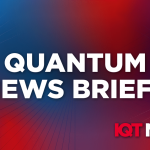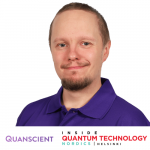Quantum Particulars Guest Column: “From Quantum Education and Outreach to Quantum Workforce”

“Quantum Particulars” is an editorial guest column featuring exclusive insights and interviews with quantum researchers, developers, and experts looking at key challenges and processes in this field. This article was written by Mariana Filipova, a Quantum Educational Programs Designer, Entrepreneur, STEM Innovator, and PhD Researcher looking at the development of quantum computing education.
In the rapidly developing technological era, the demand for people with quantum thinking begins to increase more and more. Quantum technologies, with their potential to revolutionize various industries, highlight the need to introduce quantum knowledge to younger generations. The growing need to develop quantum thinking among young people is combined with the need to use innovative educational methods that set a revolutionary beginning in the field of education.
Undoubtedly, now is the right time to start informing the public about the existence of quantum sciences and technologies and the place they are about to occupy in our lives, integrating into almost all technological sectors, businesses, and scientific fields. For this reason, the popularization of quantum concepts needs to be embedded in more initiatives and programs to inform society about the need for and benefits of knowing matter. Also, lowering the age of learning is key to building a mindset and the foundation of modern knowledge. Supplementing the existing academic subjects with innovative knowledge of quantum rules (in biology, quantum biology should also be studied, in chemistry and quantum chemistry, in computer science, and quantum computers) is now a necessity. Thus, the focus on promotion and education in the quantum sector is increasingly expanding its reach, with new programs and comprehensive visionary solutions being launched.
First Hand Experience with Quantum Education
I (Mariana) am the creator of some of the first educational courses in quantum science and technology for all school ages (elementary, junior high, and high school). I am a member of the international team of 20 professionals from 14 countries worldwide who are starting a targeted development of quantum computing training for high school students in Berlin, Germany, from 2022 to 2026. I’m also the project manager for “School of Quantum Science and Technology,” the first comprehensive educational solution to start in 2024 and educate children from the primary education stage. Motivation and knowledge in the field of quantum technologies for the younger generation are important, as they are the future quantum workforce that we are increasingly discussing and focusing on due to the expectations of the high-escalation development of quantum computers in the coming years.
We should not forget that today’s children were born in the age of AI and quantum technologies, and they will be in the labor market with its new demands and needs before long. To have progressive business and developed science, we need to prepare society for this, not to rely only on the randomness of inspired and interested individual characters, but to create our future, responsible and united.”
Last but certainly not least is the imperative need for building a quantum workforce. According to McKinsey research, more than 50% of all quantum computing jobs will remain unfilled by the next year. “Closing the gap” requires recognizing and analyzing the problem and being proactive and creative in decision-making. Postponing or neglecting the preparation of the population for the new technological era would be a significant fault, as there is currently only one qualified quantum candidate for every three quantum job vacancies. Addressing this issue is not just about personnel shortages and economic benefits; it’s also about fostering adaptability and mindset-building in individuals poised to face changes in labor market requirements. Industries such as pharmaceuticals will require individuals versed in quantum chemistry; the banking and financial sector will need to integrate innovative cybersecurity solutions; and HR professionals will need to make competent judgments about the mindset, potential, and skills of candidates to meet the evolving needs of hiring companies.
Mariana Filipova is a Quantum Educational Programs Designer, Entrepreneur, STEM Innovator, and PhD Researcher. She is among the TOP 10 Quantum Leaders (Femtum Leap Awards) and is a member of the international team that works on Quantum Computing lessons for school students (Berlin, 2024-2026). She is starting the first Quantum Science and Technology School in 2024, the STEALM Academy.



















